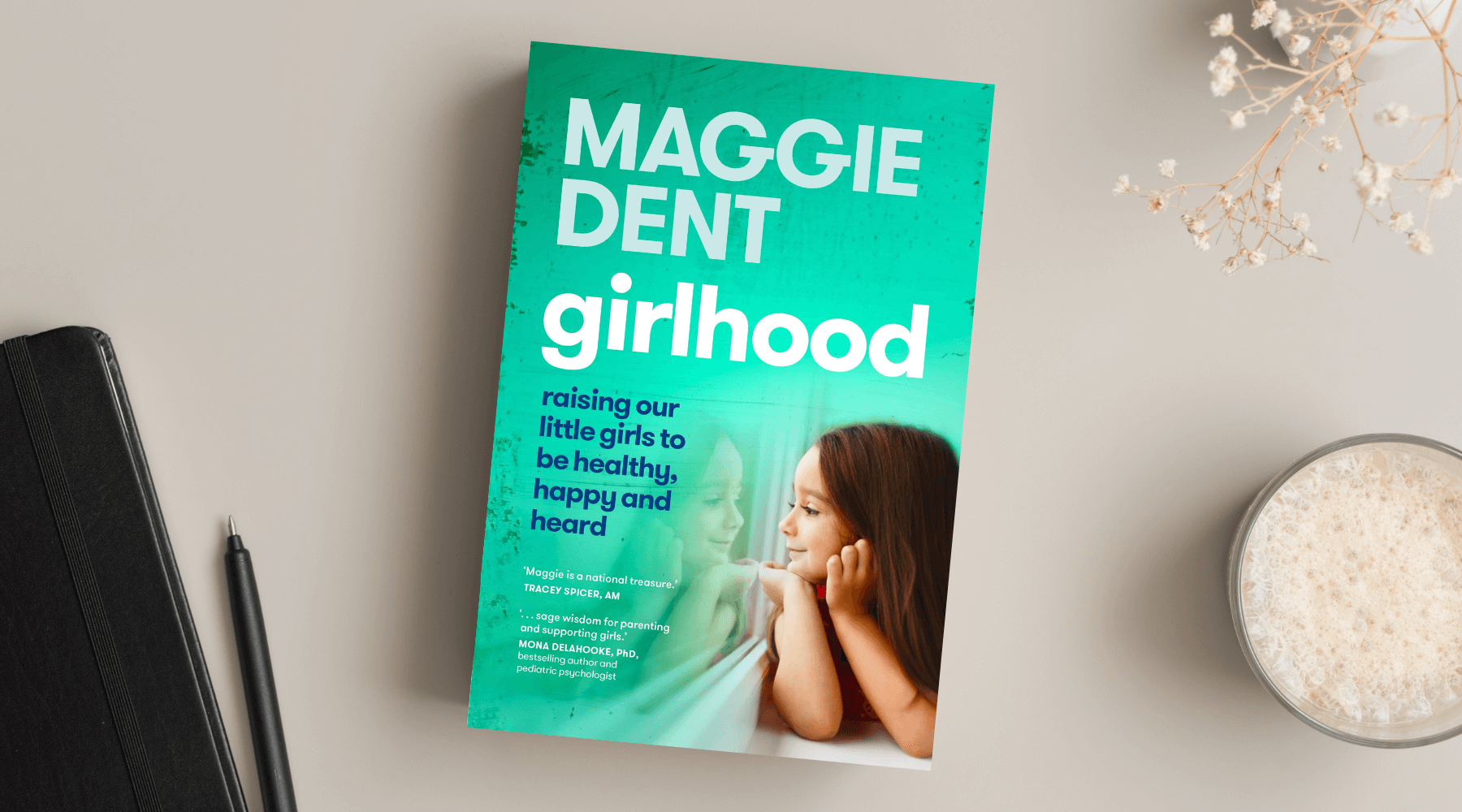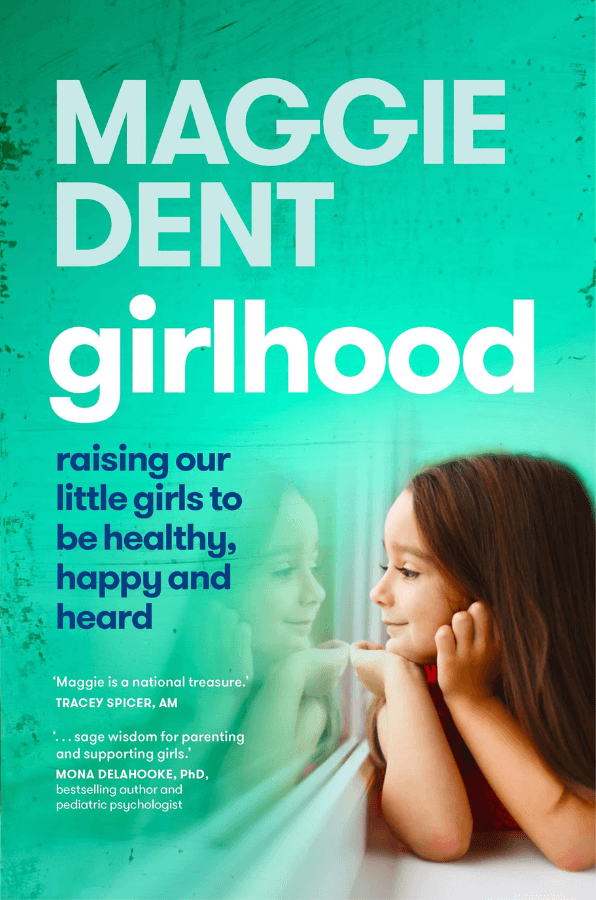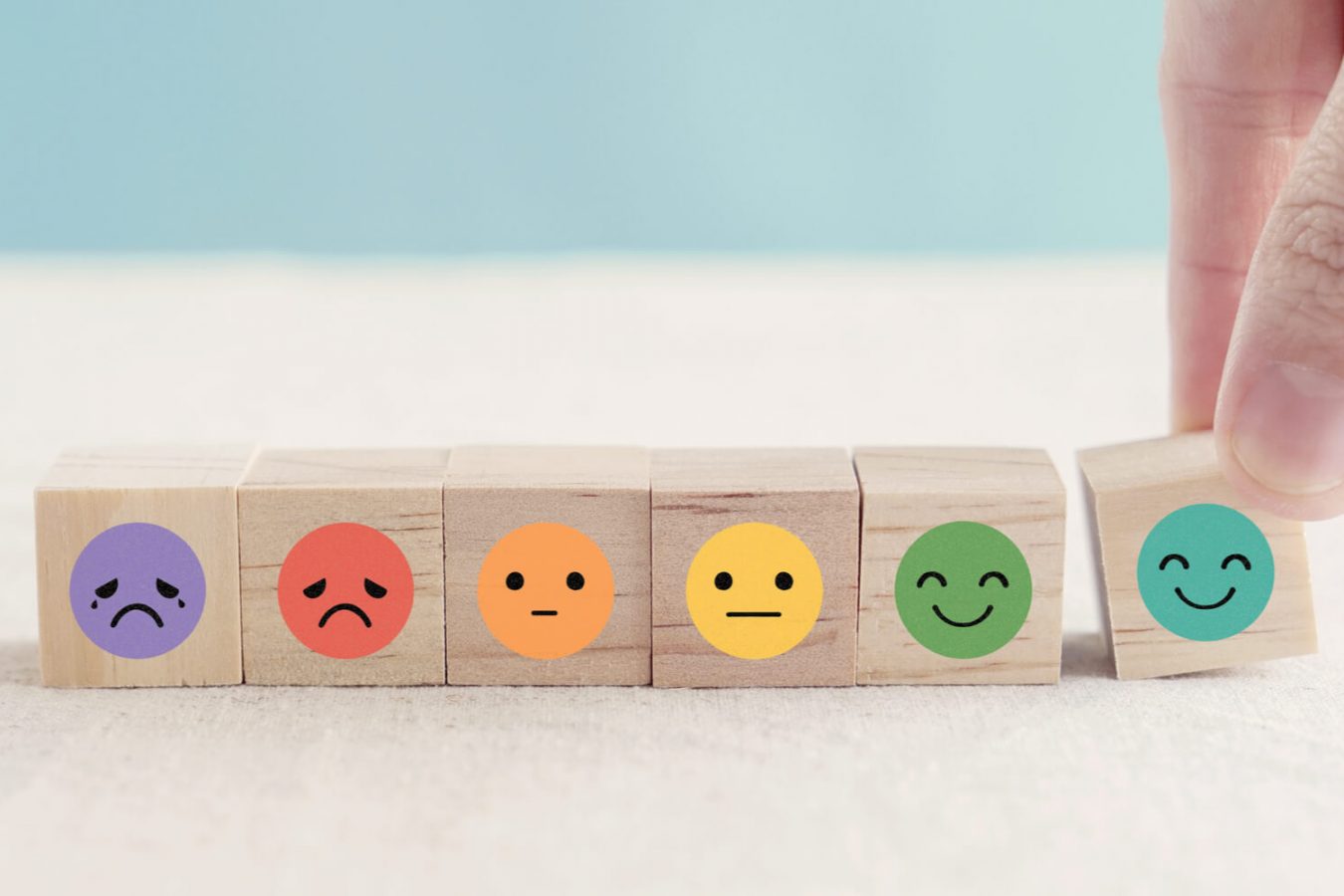
In this extract from her new book, Girlhood, parenting educator Maggie Dent gives parents ideas to help their young girls through their emotionally charged 'hot' moments.
Parenting is really like an endless guessing game. This list of suggestions may give you some ideas and new insights into helping your relationship with your little girl, and help her through her highly emotionally charged ‘hot’ moments. Keep in mind as you read that you, the parent, are the person who knows your child the best, so choose the suggestions that best suit your little girl.
MAGGIE’S MAIN IDEA
One of the things that we do need to accept as the parent of a girl is that emotional intensity is quite normal and not a sign that there is something wrong with your little girl, or something wrong with your parenting.
1. Communicate respectfully as you would with your best friend.
Your daughter from birth is a whole person with her own mind and her own unique needs. Like many first-time parents, I believed that my newborn was completely helpless, needy and totally dependent on me. I had no idea that he was capable of being communicated to, and responded to, in a far more intelligent and responsive way until he was about nine months of age. He walked early and one day, I suggested he take his towel and put it in the laundry, having absolutely no expectation that he could understand me! A short time later, I found the towel in the bathroom, and my whole perception of raising little ones changed forever. When we see our little ones as capable, aware, intuitive and able to understand language and abstract ideas, we change the way we communicate.
Whenever adults speak, we are being role models for the children in our presence. What we speak is what we teach. Children record every word we ever say to them or in front of them. The language children grow up hearing is the language they will speak.
– Pam Leo, ‘Teaching Children Respect’, connectionparenting.com (13 June 2020)
Imagine you are out for lunch with your best friend. If she spilled some food on her shirt, what would you say? If your little daughter did the same, what would you say and how would you say it? Imagine saying to your partner, ‘It is time to do the dishes, 5–4–3–2–1, now off you go.’ Other disrespectful behaviours that our little ones tend to get a lot are criticising, lecturing, ridiculing, bribery, shaming, screaming and threatening. Given that our little girls have a heightened emotional awareness, and very long memories, communicating to them disrespectfully is one of the main ways we create the negative inner voice that becomes very loud when they become adolescents. If you want to help your daughter to learn to love and value herself, focus on respectful communication.
2. Help her understand her own unique strengths, challenges and needs.
Given the pressures on our girls to be ‘perfect’, we need to build a strong foundation of awareness about authenticity. Help her to identify the things that bring her joy and happiness, as well as the things that cause her to struggle so you can support her to build strategies to manage her challenges. You can help her to build a healthy attitude and mindset to learning and life. Some of her ‘hot’ moments will come from failure and setbacks. Check Chapter 16 on resilience, because it can be nurtured from toddlerhood.
3. Connect and redirect.
If you need your little girl to come to the table for dinner or to go and clean her teeth before bed, rather than calling out a command across the room, try coming alongside her and connecting warmly before making your request respectfully. The same can happen when you need to leave a playground that she is enjoying. Come alongside her and maybe whisper quietly that you will need to leave soon. Commanding and demanding our children can often trigger a stress response in them because it can threaten their own autonomy. It is exactly the same in the classroom as it is in our home.
4. Seek their help.
Toddlers and infants like to be helpful and to be treated as capable. If the play room has toys everywhere and you would like it cleaned up, ask your daughter what she thinks would be a good way to do that. If you run out of groceries, ask your daughter to remember certain items for next time you go shopping. Ask her to help you remember lots of things because she can be really good at it and it helps her feel valued and important. When your little girl feels powerless or that she doesn’t matter, her stress response can be triggered, which increases the chances of meltdowns and tantrums.
5. Name it to tame it.
This is an excellent technique that comes from The Whole-Brain Child by Daniel J. Siegel and Tina Payne Bryson. When our little girls experience something painful, disappointing or frightening, the amygdala can flood and the fight-or-flight response can be activated. Supporting her to identify her feelings is helpful, if you can do it before she becomes emotionally overwhelmed; otherwise, wait until she is able to calm down. Ask her to retell the story of whatever experience frightened her. This allows our little girls to explore their feelings within the story and an adult may then be able to help explain any bits she can’t understand. Some little girls may need to tell their story over and over until they make sense of it themselves. This can be tricky because the sooner you go over the story, the better, but if it’s time to cook dinner, pick up other children, or you are about to leave for work it can be like a red rag to a bull. Little girls need to be heard when they need to be heard, not just when parents have time to listen.
This technique is really helpful to explore further through the work of Dr Lisa Feldman Barrett, who I have mentioned before. Her research shows that our emotional world and how we predict future experiences in our life is built on our experiences. Without a safe grown-up to help a little girl make sense of her big emotional feelings, and then help her release them, many little girls end up with emotional tension buried somewhere in their body or nervous system.

6. Accept and validate that all emotions matter.
It’s so important to teach our little girls that emotions are meant to be experienced and it is okay to feel them. Reframe any messages that suggest that girls are more dramatic because they express their emotions verbally more than boys. It’s important girls understand that our emotions exist because we are human, not because we are weak, bad or naughty. ‘It’s okay to not be okay’ needs to be affirmed for our little girls. Telling her at times, ‘It’s okay to be angry at your brother for breaking your Duplo tower’, ‘It’s okay to feel a little bit worried about starting big school’. Keep reminding her that you hear her and you are here for her.
7. Helping them express ‘hot’ emotions safely.
While is it important to validate that expressing emotions is okay, we also need to teach our girls that there are some boundaries around how they express big feelings. Hitting others is not okay when we are really angry. If your daughter feels the need to hit, give her a big cushion or suggest that she hits a soft couch. Tapping on the K27 acupressure point (google it!) on the thumb side of the nail on her middle finger can release emotional tension from the nervous system. Try it yourself next time you are upset.
Tell her that running away is okay when you’re at your home, however, running while out in public is not okay because she could run onto a road or get lost.
8. Attitude matters.
Given that we know about how beliefs, mindsets and how we predict the world are all formed in the first five years of life, we need to do everything we can to help our little girls develop a healthy and positive attitude to life. Dr Martin EP Seligman explains that optimism is not just positive thinking; it’s more about the way you think about things. There are three different dimensions that we can explore to help little girls make sense of both the good and the bad that will occur in life. They are permanence, pervasiveness and personalisation.
MAGGIE’S MAIN IDEA
Our thoughts not only create our own version of reality and our map of the world, they create our emotions as well, so helping little girls to build healthy attitudes makes sense.
A) Permanence. If you have noticed that your daughter is using words like ‘worst’, ‘never’, ‘devastated’, ‘always’ or ‘everyone’, it could be a sign that she is wiring herself to see the world through a negative lens. ‘It always happens to me! Everyone hates me.’
When our girls spend time watching other girls catastrophise, they are more likely to act more fragile and powerless than they normally do.
– Kasey Edwards and Dr Christopher Scanlon, Raising Girls Who Like Themselves (2021)
After they’ve had a good vent, we can help our daughters pause their thinking by asking them questions. This technique interrupts their mind from looping a familiar negative story. When our brain hears words suggesting permanent awfulness, it automatically winds up the emotional intensity. It can be helpful to keep reminding your little girls that how you feel right now won’t last forever. Indeed, you could burst into the famous song from Frozen, ‘Let It Go’, to help her understand this.
Try asking:
- ‘Is that really true?’
- ‘How do you know that is true?’
- Substitute words like ‘occasionally’, ‘sometimes’, ‘some people’, ‘a little bit’. Remember, our inner voice can become a habit and habits take time to change. If this is happening with your daughter, help her to create some fabulous posters for her bedroom and bathroom that show positive attitudes to counteract her negative views.
- You could model to her that she can interrupt those thoughts by tapping on the side of your head: ‘Delete, delete, delete’.
B) Pervasiveness. This means that if you believe a cause is pervasive, you tend to project its effect across many different situations in your life. This is a really common way of building a negative attitude to yourself and life and it is something that little girls are expressing a lot. ‘I am always useless.’ ‘Nothing ever goes right for me.’ ‘Everything is unfair.’ This is the pattern of the catastrophiser, and it is something that can become incredibly debilitating in the tween and teen years. Spend some time deconstructing and reframing the pervasiveness that you hear from your little girl. Some really positive affirmations that you can help your little girl adopt include:
- I am enough exactly as I am.
- I am, I can, I will.
- Everybody matters – no matter what.
- I am so much more than this experience.
- Stretching my comfort zone will make me grow stronger.
- I can deal positively with anything that happens in my life.
- No matter what happens, I am still a worthwhile person.
- I matter in this world.
C) Personal. The third dimension is the ‘personal’ where individuals decide where the fault lies. When bad things happen, individuals can blame themselves (internal) or they can blame other people or circumstances (external). Blame can become a really toxic influence later in life if we turn it outwards inappropriately, therefore avoiding accountability and responsibility. Conversely, we can also tend to become our own worst enemies by blaming ourselves for things that are not of our doing.
Depressed children and adults are forever blaming themselves and feeling guilty over things that are not at all their fault, and being a self-blamer increases a child’s chances for depression.
– Martin Seligman, The Optimistic Child (2011)
9. Teaching emotional release techniques.
It can be really helpful to support our little girls as they work out how to discharge emotional tension in a way that suits them. Not all girls like to talk about big feelings. As a little girl, when I was upset, I took off for the bush or the paddocks and would only come home when I felt calmer and happier. If you can model techniques, like taking some deep breaths when you feel stressed, your daughter will copy you. If you sometimes recognise you are becoming too stressed, and you let your daughter know you’re going to sit in the calm-down chair, or you’re going to have five minutes in your bedroom to calm down, your daughter will copy you.
I am a huge fan of tapping on the body’s acupressure points to release emotional tension. I have been using this technique for more than 20 years and it is still my go-to when I am facing a big emotional challenge. It could be grief, anger or frustration. I tap on my K27 point, near the clavicle on the chest, for a couple of minutes while taking some deep breaths, and I can feel a noticeable difference with my emotional intensity. There are other acupressure points on the head, fingers and hands that we can teach our little girls how to use from a young age.
Creative Visualisation (CV) is another way to help build healthy pathways in your daughter’s mind. Imagining going for a walk on the beach, sitting under a full moon or eating an ice cream on a holiday will trigger the same feel-good endorphins that would be generated if the event was really happening. CV is also effective at shifting negative mindsets and negative attitudes, especially for children under the age of eight. Thankfully, mindfulness has now become mainstream, and learning and incorporating these techniques into our lives can benefit grown-ups and our children.
10. Family meetings.
Given that a family is a system and all systems need leaders and opportunities for their members to be heard, having a family meeting, either regularly or from time to time, can make a huge difference in the lives of children. Rather than the parents being the sole problem-solvers and decision-makers, creating a cooperative climate is not only respectful, it can improve predictability, cohesion and connectedness within your family.
MAGGIE’S MAIN IDEA
Family meetings can be really helpful for younger kids as well as they get to see adult communication and, most importantly, have the opportunity to be heard.
I encourage using a talking stick so that only one person can speak at a time. This ensures that the quieter ones can be heard and it can teach our children to become respectful listeners. In many families, sometimes something quite small might be triggering emotional tension and conflict can fester and become a much bigger issue. This can include siblings fighting over chores, poor boundaries around personal belongings or a sense of unfairness in the way grown-ups are making choices. To be truly respectful in our parenting, and to give children the best possible opportunity to understand relationships and how to overcome conflict, they need to experience it.
Given how important it is for our little girls to be heard and respected, to be seen as creative thinkers and problem-solvers, a family meeting can be your excellent way of giving them that space. It’s a great idea to keep the meeting short and to finish on a challenge that the whole family needs to consider but which can be resolved at the next family meeting. This encourages deeper thinking and usually some incredibly creative solutions are found.

About the book and Maggie Dent
Girlhood by Maggie Dent, is published by Macmillan Australia, RRP $34.99 –available now.
Maggie is one of Australia’s favourite parenting authors and educators, with a particular interest in the early years, adolescence and resilience, and is known as the ‘queen of common sense’.
Like this post? Please share using the buttons on this page.
Sign up for our newsletter

